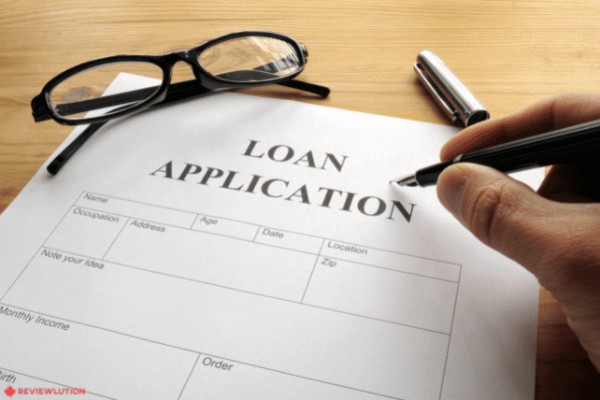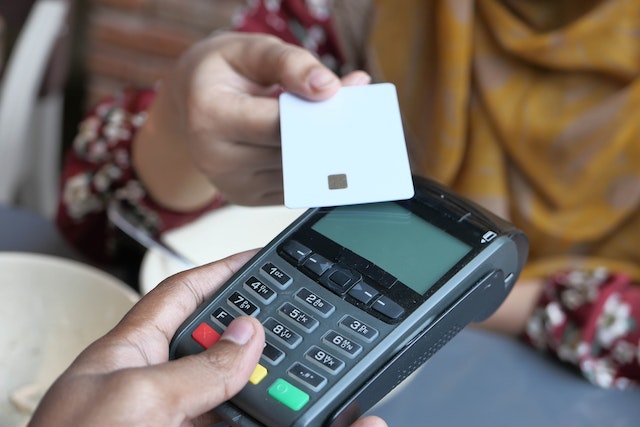Loans for People on Disability: How to Obtain One?
People with disabilities face many challenges, one of which is qualifying for a loan. Financial struggles are the core issue for many people, but even more so for disabled individuals.
There come times when unforeseen things happen, requiring an immediate reaction. This is when emergency funds at your palm’s reach come in handy—the question is how to get them.
Keep on reading to find out if there are loans for people on disability and what the requirements are.
Can You Get a Loan on Disability
Many people have trouble qualifying for a loan. It comes with great responsibility, and the borrower must meet the requirements set by lenders. Not even having a full-time job does not guarantee you a loan.
That being said, people with disability face even greater challenges when applying for a loan.
Being disabled typically prevents these individuals from having full-time jobs; thus, they don’t have a solid income, which is essential for loan approval. Instead, they must rely on a federal or provincial assistance program, which is oftentimes their only source of income. This is usually problematic for lenders because they are hesitant to give disability loans if that’s the case.
People on disability have a legal right to apply for a loan—there can’t be any discrimination against them. Every disabled person has the same rights as a non-disabled individual.
The problem is that lenders find it risky for them if a disabled person relies only on government assistance programs as the only stream of income. Because if the disabled person defaults on the loan, the lenders have no other source to come after for the money. This is the main issue when it comes to loans for disabled people.
Loans available to people with disabilities
Although it’s quite difficult for individuals to get a loan for disability, there are still options for them. Mind you, you need to go through the qualification process, which requires having a good credit score and a solid income.
Let’s look at some of the available loans for disabled people.
Payday loans
Payday loans are the most common type of loan for people on disability. These are short-term loans available for people who get their income from social assistance program benefits. The limit of payday loans is typically around $1,500, which is enough to cover the basic expenses. Payday loans can be used for emergencies or medical expenses, and for paying bills or small property repairments.
The good thing about payday loans is that they provide financial assistance for people on disability, regardless of their source of income. However, be mindful of the fact that not all lenders are the same.
While some will approve a loan for disability with no problem, others might try to take advantage of your situation. That’s why it is crucial to look for trusted and reputable lenders who comply with local and federal regulations.
The downside of payday loans is that they are very pricy. Because they are short-term loans, it means that your monthly payments will be way higher than long-term loans.
Instalment loans
Instalment loans are an unsecured type of personal loans that do not require collateral. They are available for disabled individuals who use some of the social assistance program benefits—such as the Ontario Disability Support Program (ODSP)—as their only source of income.
Instalment loans can be repaid over smaller amounts, but they do, however, come with higher interest rates. Instalment loans are also a bit more flexible in their requirements than most traditional personal loans, but they have a stricter policy than payday loans.
The terms can be anywhere between 6 and 60 months, and the loan amount is typically between $500 and $5,000–$10,000. The advantage of instalment loans is that it’s possible to secure a loan for disability even with a fairly poor credit of 660 or below. But bare in mind that having bad credit means much higher interest rates. Depending on your credit score, interest rates for instalment loans can range between 8%–47%.
However, before applying, check in with the lender to see if they do accept your assistance program to be your only source of income.
Car loans
Car loans are secured loans because they use your car as collateral. These are much more accessible to people with disabilities because using collateral provides greater reliability. Thus, borrowers with bad credit have better chances of securing loans.
Another advantage for those with bad credit that want disability loans is some auto loans do not require a credit check. But remember that if you miss your payments, the lender will seize your car.
The downside of car loans is that they come with very high-interest rates of up to 29%. That’s why it’s worth considering how much your income is and calculating if you can keep up with the monthly payments. Lenders might not concentrate that much on your credit score due to the collateral, instead wanting to see that you have a steady and somewhat solid income.
Check out the best car loan rates from providers in Canada.
Requirements and Eligibility for Loans on Disability
To qualify for disability loans, specific criteria must be met. Check the requirements provided below to see if you’re eligible to apply.
- Must be of legal age (18 or 19, depending on the province);
- Must be a Canadian citizen;
- Reside in a province where lenders have permission to provide loans for disabled people;
- Must have a steady income for which you might be required to provide a proof of your disability income or bank statements for the last three months;
- Must have a Canadian bank account that has been active for the past three months;
- Must provide a valid home address, email address and a phone number.
These are the basic requirements that you must fulfill if you want to secure a loan for disability. It’s worth noting that even if you satisfy the eligibility criteria, you will still need to pass the requirements set by the lenders.
How to Get Approved for a Loan on Disability
If you meet the eligibility requirements for disability loans, the next step is to go through the qualification process to get a loan approval. There are several factors in play that can significantly impact your borrowing power.
Have an additional income source
While some lenders have no problem if the primary source of income is from your social assistance program benefits, others might be more reluctant to approve a loan if that’s the case. For instance, instalment loans are acceptable for people on ODSP or some other assistance program, but for other types of loans, you might need to have an extra income.
Lenders want an assurance that you’ll be able to keep up with your monthly payments, and sometimes they might regard your income from disability benefits insufficient. If you can find another source of income or think you can take a part-time job, this would increase your chances of getting any loan significantly.
Pay off outstanding debts
The more debts you have, the lower are your chances to get approved for a loan. Significant debts imply to lenders that you are a risky borrower and can’t rely on you for repayment.
This indicated you might not be able to make on-time payments, which is a key factor for lenders when they contemplate working with you.
So, if possible, try to pay off most of your outstanding debts before trying to qualify for a new loan.
Secure a co-signer
If you’re unable to secure an additional source of income due to the severity of your disability, then having a co-signer will greatly improve your chances for loan approval—especially when you’re trying to get a larger loan.
Having a co-signer can also help you get more affordable rates, as is the case with getting a loan while on disability assistance in British Columbia.
Ask a family member or a friend if they can guarantee for you to help you out in the qualification process. But don’t forget that defaulting on your loan means the responsibility for payments is passed to your co-signer.
Check your credit history
Keeping a clean credit history plays a huge role when lenders assess your creditworthiness. They want to see that you’re reliable and responsible as a borrower. That’s why checking your credit report regularly is necessary to spot any inaccuracies that may negatively impact your credit history.
Improve your credit score
Some disability loans have a more relaxed policy regarding credit scores. However, most of the time, your credit score is a determining factor in whether you will get approved or not.
If you have a bad credit score and your only income is from your disability benefits, it might be harder to get a loan. It’s not that a lender will deny your loan application because you’re on disability assistance—they can’t do that. They can, however, reject you because your credit score is not high enough to meet lenders’ requirements.
You can improve your credit score by keeping timely payments, paying off your outstanding debts or finding a part-time job to increase your income.
If you’re looking for loans with no credit check, check out our article on loans in Canada with no credit check.
Check your debt-to-income ratio
Having more than one debt and insufficient income will only increase your debt-to-income ratio. As your debt will likely top your income, you will be unable to keep up with your payments and might find yourself in a bind.
Before applying for loans for disabled people, check your debt-to-income ratio and see what you can do to improve it. You might find out that your current situation does not provide you with the needed financial support. The larger the debt-to-income ratio, the harder your chances of approval are.
Look for low-income programs
Canada offers several low-income programs that can help you boost your revenue, which in turn, can increase your borrowing power. They offer monthly payments designed for disabled people who need additional assistance with their finances.
Some of these programs are:
- BCEA (BC Employment and Assistance program);
- SAID (The Saskatchewan Assured Income for Disability)—this program is aimed at supporting individuals with significant disabilities;
- AISH—Assured Income for the Severely Handicapped. This program is available in the province of Alberta;
- Ontario Disability Support Program (ODSP).
Pick the right lender
And last, but not least, finding the right lender is of colossal importance. Firstly, they must have the authorization to give disability loans and be specialized in the matter. Search for a lender that can work with your situation. Ask around for recommendations or talk to your plan advisor if they know a trustworthy lender with transparent and ethical practices.
Will a Loan Affect Your Disability Benefits
Technically speaking, a loan can’t hurt your disability benefits because a loan is not considered an income. However, there is one scenario when getting a loan for disability may impact your disability benefits.
If you get the loan and don’t spend it within the month of receiving the funds, those funds can count towards the asset limit. Anything leftover from the loan may affect your eligibility for disability benefits.
That’s why it’s essential to spend your loan in a proper timeframe. Many loan specialists advise you to apply for the loan for disability at the end of the month—this way, you get your approval at the beginning of the following month. Thus you are left with more time to spend the entire amount.
Key Takeaways
Now that you have read about the loan options for people on disability and what you should pay attention to, we hope you have a clear understanding of what to expect.
Be sure to choose the right lender and keep working on improving your credit score so you stand better chances of being approved for disability loans.
FAQ
Yes. Payday loans offer this option. You can use your disability check payout to repay your loan.
That is possible, as long as you meet some of the other lender’s requirements. For instance, instalment loans and car loans are available for disabled individuals with bad credit.
Yes. It’s possible to take a car loan but lenders will use your car as collateral. So make sure to have enough funds for regular instalments. The advantage of car loans is that they are also accessible to people with poor credit scores.
Loans for people on ODSP are available if the lender that you have chosen accepts applications from people on ODSP. However, you should always check if a lender approves loans for people on disability before you apply.












